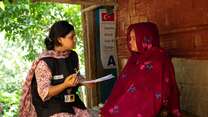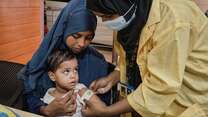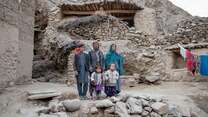2022 was a transformative year for IRC's programming in Bangladesh. Throughout the year the IRC made positive changes on the lives of thousands of its clients. The report is being published on an occasion of IRC's five years of operations in Bangladesh. During this time, significant milestones have been achieved in providing essential support to both Rohingya refugees and host community members, who endure challenging conditions with limited access to basic services. Despite global challenges such as diminishing international support and escalating acts of violence, IRC's commitment remained unwavering. In FY22, IRC served 741,489 clients from the Rohingya refugee camps and host communities, a substantial increase from the previous year's figure of 386,641. IRC's interventions in healthcare, protection, education, emergency response, and advocacy have contributed to improving the living conditions of the clients. IRC successfully launched a strategic action plan, further consolidating its collaboration with the local government, national organizations, various sectors, sub-sectors, and groups working in the Rohingya refugee and climate crisis in Bangladesh. Moreover, adhering to the Government of Bangladesh’s localization agenda, the IRC shifted its strategy towards greater partnerships with national organizations. The IRC is currently partnering with 11 national organizations and enriching them for the future so that they can sustain their operations and strengthen their capacities in the long run.
The Rohingya refugee crisis has evolved into a prolonged and protected emergency, causing profound disruptions to the lives and livelihoods of both the Rohingya and host communities. The escalating demand for assistance necessitates heightened humanitarian support to mitigate violence and establish a secure environment for all individuals involved. With the future of Rohingya refugees hanging in uncertainty, it becomes crucial to provide them with hope and stability. Through compassionate efforts, IRC has made significant contributions to enhancing the circumstances of both the refugees and the members of the host communities. Moreover, acknowledging the urgent challenges posed by climate change, IRC integrated climate resilience initiatives into its programs. By expanding its operations in the vulnerable region of Southern Bangladesh, prone to disasters, the IRC has been able to address the interconnected impacts of climate crises and displacement with a focus in building resilient communities and enhancing the capacity of local stakeholders to mitigate and adapt to the changing climate conditions.
Report



